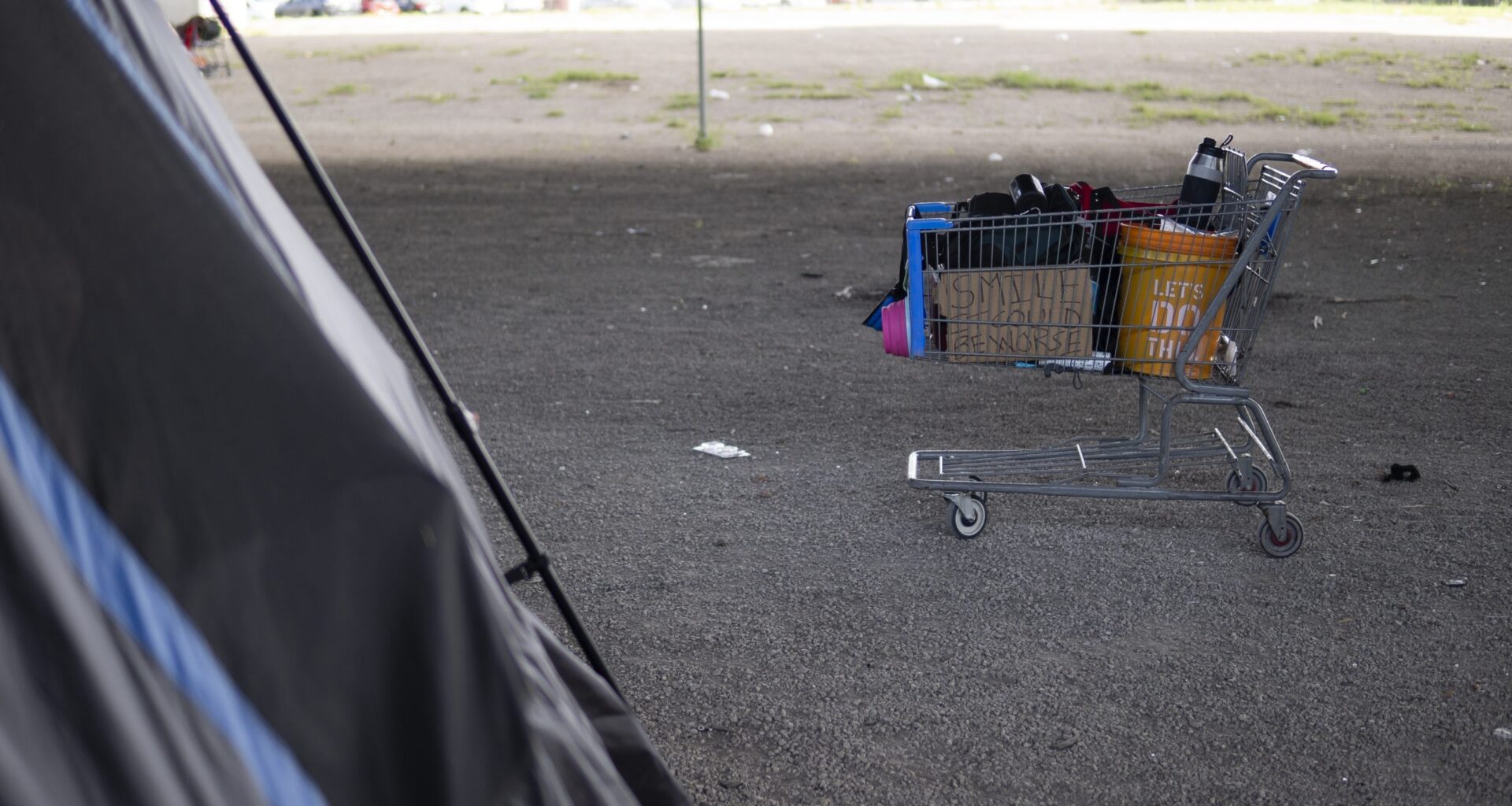Sign up for The Brief, The Texas Tribune’s daily newsletter that keeps readers up to speed on the most essential Texas news.
Audio recording is automated for accessibility. Humans wrote and edited the story. See our AI policy, and give us feedback.
Gov. Greg Abbott has launched an operation in Austin to remove people experiencing homelessness and dismantle homeless encampments.
Abbott, in a Tuesday morning news release, said the operation began late last week and has already removed 48 encampments. It’s unclear where the state is taking people to and what services are being provided to them.
The governor said his motive is to make Austin “safer and cleaner.” His office said the operation so far has arrested 24 repeat felony offenders, seized over 125 grams of narcotics and removed 3,000 pounds of debris.
“Texans should not endure public safety risks from homeless encampments and individuals,” Abbott said. “Weapons, needles, and other debris should not litter the streets of our community, and the State of Texas is taking action.”
Abbott said he has directed the Texas Department of Public Safety to lead the initiative, in collaboration with other state agencies. It did not coordinate with the city, Austin officials said.
Abbott’s office has not yet responded to additional questions from The Texas Tribune.
Homelessness has been a perennial political issue in Austin. In 2021, Austin voters supported a ban on public homeless encampments. The ban was previously lifted by Austin City Council, which argued that the policy led to citations for people experiencing homelessness that hurt their ability to find housing.
An effort at the Legislature to enhance a statewide ban on homeless campsearlier this year but failed to become law.
Abbott’s announcement comes a day after Austin began its new effort to address homelessness, called the Citywide Encampment Management Prioritization Initiative. Monday evening, the city reported the “clean-up” of 46 encampments in which most people agreed to leave voluntarily and were connected to other shelters and services.
It also said two people were arrested, one for criminal trespass and resisting arrest, and another on a drug-related charge.
“These activities are personnel intensive and cost money,” Austin Mayor Kirk Watson said in a statement. “There is also the issue that simply cleaning up a camp and not having a place for homeless people to go, such as a shelter or other housing, just moves them to someplace else in the city. The city has also put significant resources into those aspects so that we don’t just move the problem from one place to another.”
The city is asking Austin voters in November to approve a higher tax rate to allocate millions of dollars for homelessness services, according to KUT. Earlier this year, the city said it needs nearly $101 million to address its homelessness population, including support services.
Across Austin, there are nearly 4,000 people experiencing unsheltered homelessness and more than 1,000 people experiencing sheltered homelessness, according to local nonprofit ECHO, the lead agency of Austin’s homeless system which works to connect unhoused people to other resources.
“It’s really complicated work, folks are on our streets for a variety of reasons,” said Matthew Mollica, executive director of ECHO. “They have a variety of needs, and so, in order to best address homelessness in our community, we see that we know that a collaborative effort is the most effective and efficient.”
Mollica said he would like to work alongside the governor to help people experiencing homelessness find permanent housing. But for now, he said he’s asking the governor to address homeless encampments with compassion
“Let’s talk and try to work on some lasting solutions to ending homelessness in our community,” he said. “We’re here to collaborate and work with the state and federal government to address these issues humanely.”
ECHO served more than 28,000 people last year across Travis County, according to a report it published earlier this month, up from the year before when it served nearly 25,000 people. It also reported that last year, homelessness decreased for the first time since 2020 by 5% and attributes that to its priorities of connecting people with wraparound services, such as health care and workforce development.
Abbott’s announcement did not include an end date for this initiative, although homelessness is a growing statewide problem. The number of unhoused Texans has increased in recent years as housing costs have climbed. Nearly 28,000 Texans experienced homelessness last year, according to federal estimates, which is about 8% more than 2019.

